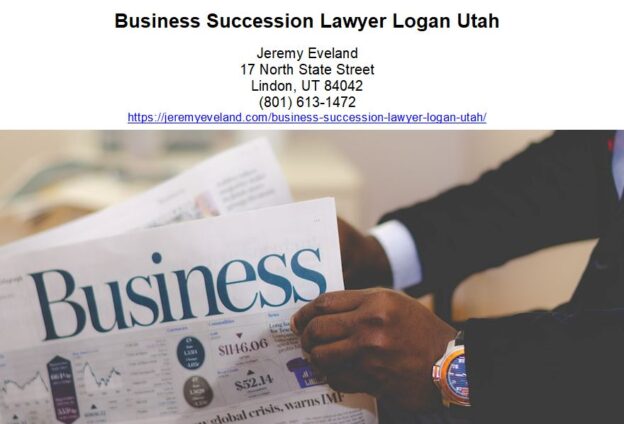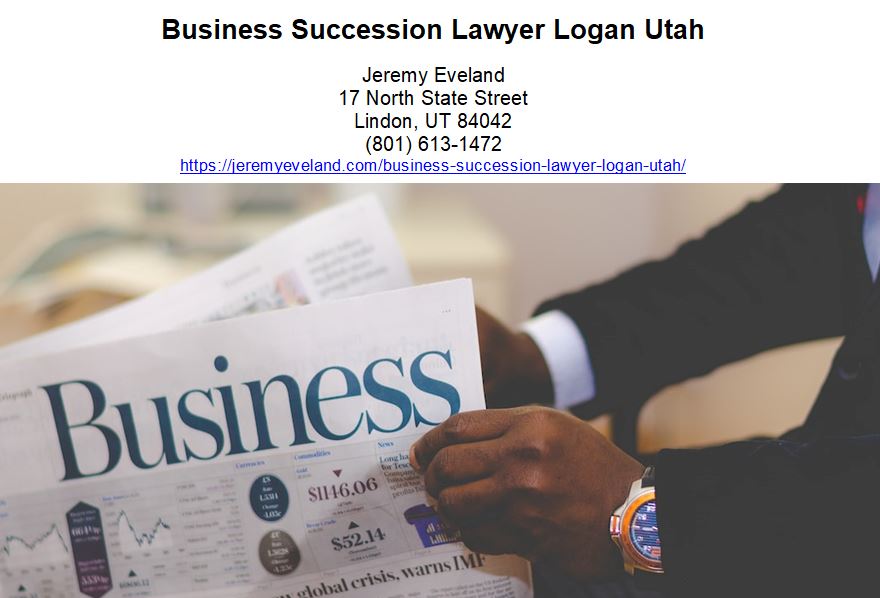-
Attorney at Law
“Unlock the Power of Utah Law with Code 39-1-36(1)!”
Introduction
Utah Code 39-1-36(1) is a state law that outlines the rights of a tenant in a residential rental agreement. This law provides tenants with certain protections, such as the right to a habitable living space, the right to receive notice before a landlord can enter the premises, and the right to receive a refund of their security deposit. It also outlines the responsibilities of both the landlord and the tenant, such as the landlord’s obligation to make repairs and the tenant’s obligation to pay rent on time. This law is important for both landlords and tenants to understand in order to ensure that their rights and responsibilities are respected.
Exploring the Legal Implications of Utah Code 39-1-36(1)
Utah Code 39-1-36(1) outlines the legal implications of a person’s failure to comply with a court order. Specifically, it states that a person who willfully fails to comply with a court order is guilty of a class B misdemeanor.
This law is intended to ensure that individuals comply with court orders. It is important to note that the law applies to all court orders, including those issued by a judge, magistrate, or justice of the peace. Furthermore, the law applies to all orders, regardless of whether they are civil or criminal in nature.
The consequences of violating Utah Code 39-1-36(1) are serious. A person found guilty of a class B misdemeanor can face up to six months in jail and a fine of up to $1,000. Additionally, the court may order the person to pay restitution to any victims of the violation.
It is important to note that the law does not require a person to comply with a court order if they have a valid legal defense. For example, if a person believes that a court order is unconstitutional or otherwise unlawful, they may be able to challenge it in court.
In conclusion, Utah Code 39-1-36(1) outlines the legal implications of a person’s failure to comply with a court order. Violating this law can result in serious consequences, including jail time and fines. However, individuals may be able to challenge a court order if they have a valid legal defense.
Understanding the Impact of Utah Code 39-1-36(1) on Businesses
Utah Code 39-1-36(1) is a law that has a significant impact on businesses operating in the state of Utah. This law requires businesses to provide employees with a minimum of one hour of paid sick leave for every 30 hours worked. This law applies to all businesses, regardless of size, and applies to both full-time and part-time employees.
The purpose of this law is to ensure that employees have access to paid sick leave when they need it. This law is intended to protect employees from having to choose between their health and their job. It also helps to ensure that employees are not forced to come to work when they are ill, which can lead to the spread of illness in the workplace.
The impact of this law on businesses is significant. Businesses must now factor in the cost of providing paid sick leave when calculating their labor costs. This can be a significant expense for businesses, especially those with a large number of employees. Additionally, businesses must also ensure that they are in compliance with the law, which can require additional administrative costs.
Overall, Utah Code 39-1-36(1) is an important law that has a significant impact on businesses operating in the state of Utah. It is important for businesses to understand the requirements of this law and to ensure that they are in compliance with it. Doing so will help to ensure that employees have access to paid sick leave when they need it and that businesses are not subject to penalties for non-compliance.
This is how the law reads:
“39-1-36. Reserve member of armed forces — Leave of absence from employment — Liability of employers.
(1) Any member of a reserve component of the armed forces of the United States who pursuant to military orders enters active duty, active duty for training, inactive duty training, or state active duty shall upon request be granted a leave of absence from employment, but for no more than five years.
(2) Upon satisfactory release from the training or from hospitalization incidental to the training, the member shall be permitted to return to the prior employment with the seniority, status, pay, and vacation the member would have had as an employee if he had not been absent for military purposes.
(3) Any employer who willfully deprives an employee who is absent as a member under Subsection (1) of any of the benefits under Subsection (2) or discriminates in hiring for any employment position, public or private, based on membership in any reserve component of the armed forces, is guilty of a class B misdemeanor.
Amended by Chapter 15, 1989 General Session”
Examining the History of Utah Code 39-1-36(1)
Utah Code 39-1-36(1) is a law that has been in effect since the early 1900s. It states that any person who is found guilty of a felony or a misdemeanor in the state of Utah shall be subject to a fine, imprisonment, or both. This law is intended to ensure that those who commit crimes in the state are held accountable for their actions.
The history of Utah Code 39-1-36(1) dates back to the early 1900s when the state was first established. At that time, the law was intended to provide a deterrent to criminal activity and to ensure that those who committed crimes were held accountable for their actions. Over the years, the law has been amended and updated to reflect changes in the criminal justice system.
In the 1950s, the law was amended to include a provision that allowed for the imposition of a fine in addition to imprisonment. This was done in order to provide an additional deterrent to criminal activity. In the 1970s, the law was further amended to include a provision that allowed for the imposition of a sentence of probation in lieu of imprisonment. This was done in order to provide an alternative to incarceration for those who had committed minor offenses.
Today, Utah Code 39-1-36(1) remains in effect and is used to ensure that those who commit crimes in the state are held accountable for their actions. The law is intended to provide a deterrent to criminal activity and to ensure that those who commit crimes are held accountable for their actions.
Analyzing the Pros and Cons of Utah Code 39-1-36(1)
Utah Code 39-1-36(1) is a law that allows for the use of deadly force in self-defense. This law has both pros and cons that must be considered when evaluating its effectiveness.
The primary pro of Utah Code 39-1-36(1) is that it provides individuals with the right to defend themselves in situations where their life is in danger. This law allows individuals to use deadly force if they reasonably believe that their life is in danger, and it provides them with legal protection if they are forced to use such force. This can be a valuable tool for individuals who are in dangerous situations and need to protect themselves.
The primary con of Utah Code 39-1-36(1) is that it can be abused. This law allows individuals to use deadly force in situations where it may not be necessary or appropriate. This can lead to individuals using excessive force in situations where it is not warranted, which can lead to serious consequences. Additionally, this law can be used as a justification for vigilante justice, which can lead to further violence and unrest in a community.
Overall, Utah Code 39-1-36(1) is a law that provides individuals with the right to defend themselves in dangerous situations. However, it is important to consider the potential for abuse when evaluating the effectiveness of this law.
Investigating the Effects of Utah Code 39-1-36(1) on Society
Utah Code 39-1-36(1) is a law that has had a significant impact on society in the state of Utah. This law states that a person who is convicted of a felony and sentenced to a term of imprisonment in the state prison shall be ineligible to vote in any election in the state of Utah until the person has completed the sentence and been discharged from parole or probation.
The purpose of this law is to ensure that those who have committed serious crimes are not allowed to influence the outcome of elections. This law is intended to protect the integrity of the electoral process and to ensure that only those who have not committed serious crimes are allowed to participate in the democratic process.
The effects of this law on society have been both positive and negative. On the positive side, it has been argued that this law helps to ensure that those who have committed serious crimes are not allowed to influence the outcome of elections. This helps to ensure that the electoral process is fair and that only those who have not committed serious crimes are allowed to participate in the democratic process.
On the negative side, this law has been criticized for its potential to disenfranchise certain groups of people. For example, those who have been convicted of felonies may be unable to vote even after they have served their sentences and been discharged from parole or probation. This can lead to a feeling of alienation and exclusion from the political process, which can have a negative impact on society.
Overall, Utah Code 39-1-36(1) has had a significant impact on society in the state of Utah. While it is intended to protect the integrity of the electoral process, it has also been criticized for its potential to disenfranchise certain groups of people. It is important to consider both the positive and negative effects of this law in order to ensure that the electoral process is fair and that all citizens are able to participate in the democratic process.
Q&A
Q1: What is Utah Code 39-1-36(1)?
A1: Utah Code 39-1-36(1) is a state law that prohibits the possession of a firearm by a person who has been convicted of a felony or certain other specified offenses.
Q2: What types of offenses are included in Utah Code 39-1-36(1)?
A2: Utah Code 39-1-36(1) includes convictions for felonies, certain violent misdemeanors, and certain drug offenses.
Q3: Does Utah Code 39-1-36(1) apply to all firearms?
A3: Yes, Utah Code 39-1-36(1) applies to all firearms, including handguns, rifles, and shotguns.
Q4: Is there an exception to Utah Code 39-1-36(1)?
A4: Yes, there is an exception for persons who have been pardoned for their conviction or who have had their civil rights restored.
Q5: What are the penalties for violating Utah Code 39-1-36(1)?
A5: Violating Utah Code 39-1-36(1) is a third-degree felony, which is punishable by up to five years in prison and a fine of up to $5,000.
Areas We Serve
We serve individuals and businesses in the following locations:
Salt Lake City Utah
West Valley City Utah
Provo Utah
West Jordan Utah
Orem Utah
Sandy Utah
Ogden Utah
St. George Utah
Layton Utah
South Jordan Utah
Lehi Utah
Millcreek Utah
Taylorsville Utah
Logan Utah
Murray Utah
Draper Utah
Bountiful Utah
Riverton Utah
Herriman Utah
Spanish Fork Utah
Roy Utah
Pleasant Grove Utah
Kearns Utah
Tooele Utah
Cottonwood Heights Utah
Midvale Utah
Springville Utah
Eagle Mountain Utah
Cedar City Utah
Kaysville Utah
Clearfield Utah
Holladay Utah
American Fork Utah
Syracuse Utah
Saratoga Springs Utah
Magna Utah
Washington Utah
South Salt Lake Utah
Farmington Utah
Clinton Utah
North Salt Lake Utah
Payson Utah
North Ogden Utah
Brigham City Utah
Highland Utah
Centerville Utah
Hurricane Utah
South Ogden Utah
Heber Utah
West Haven Utah
Bluffdale Utah
Santaquin Utah
Smithfield Utah
Woods Cross Utah
Grantsville Utah
Lindon Utah
North Logan Utah
West Point Utah
Vernal Utah
Alpine Utah
Cedar Hills Utah
Pleasant View Utah
Mapleton Utah
Stansbury Par Utah
Washington Terrace Utah
Riverdale Utah
Hooper Utah
Tremonton Utah
Ivins Utah
Park City Utah
Price Utah
Hyrum Utah
Summit Park Utah
Salem Utah
Richfield Utah
Santa Clara Utah
Providence Utah
South Weber Utah
Vineyard Utah
Ephraim Utah
Roosevelt Utah
Farr West Utah
Plain City Utah
Nibley Utah
Enoch Utah
Harrisville Utah
Snyderville Utah
Fruit Heights Utah
Nephi Utah
White City Utah
West Bountiful Utah
Sunset Utah
Moab Utah
Midway Utah
Perry Utah
Kanab Utah
Hyde Park Utah
Silver Summit Utah
La Verkin Utah
Morgan Utah
Utah Code 39-1-36(1) Consultation
When you need help with Utah Code 39-1-36(1) call Jeremy D. Eveland, MBA, JD (801) 613-1472 for a consultation.
Jeremy Eveland
17 North State Street
Lindon UT 84042
(801) 613-1472
Related Posts
Legal Requirements To Form A Trust
Charitable Estate Planning Trusts
Estate Planning Lawyer Sandy Utah
Using Disclaimers In Estate Planning
Business Succession Lawyer Spanish Fork Utah
























